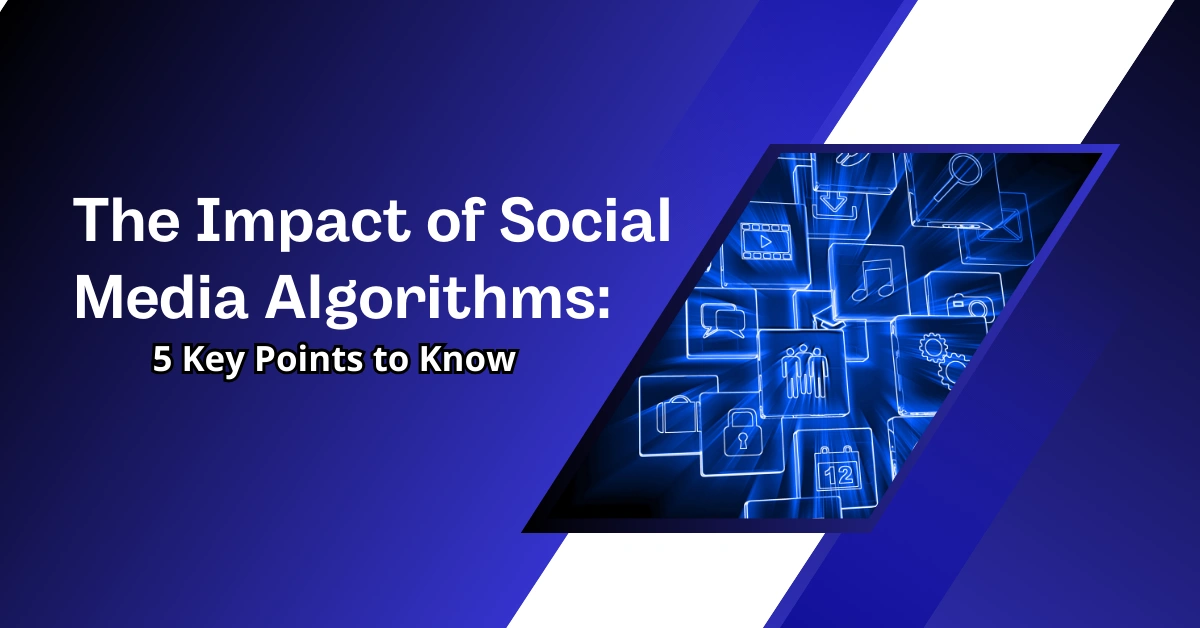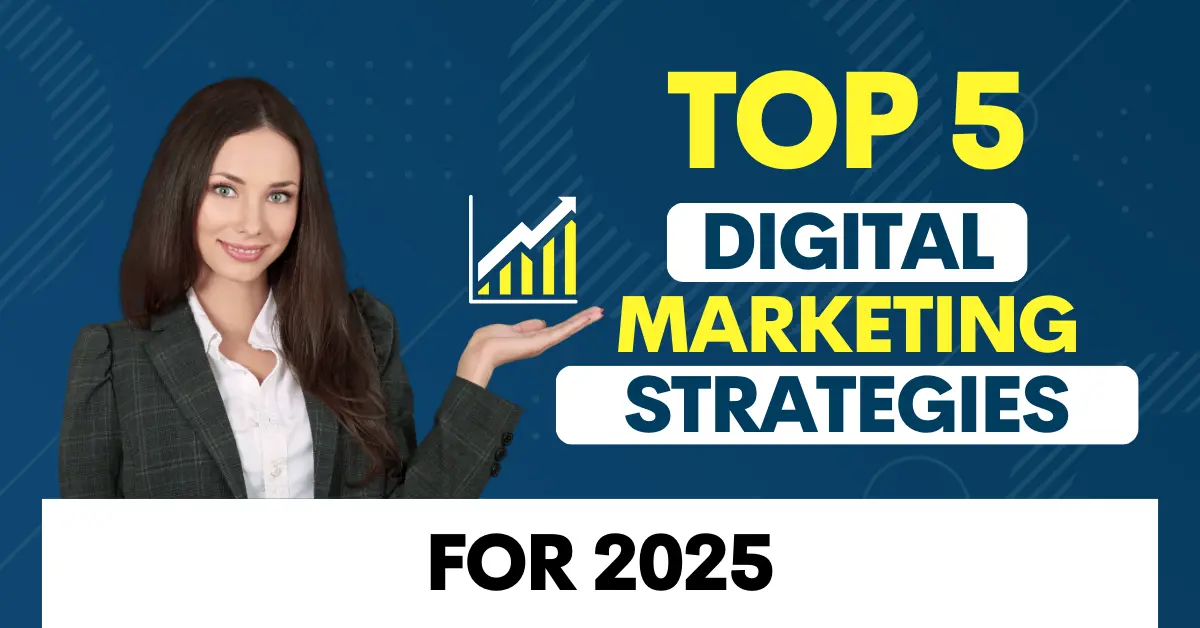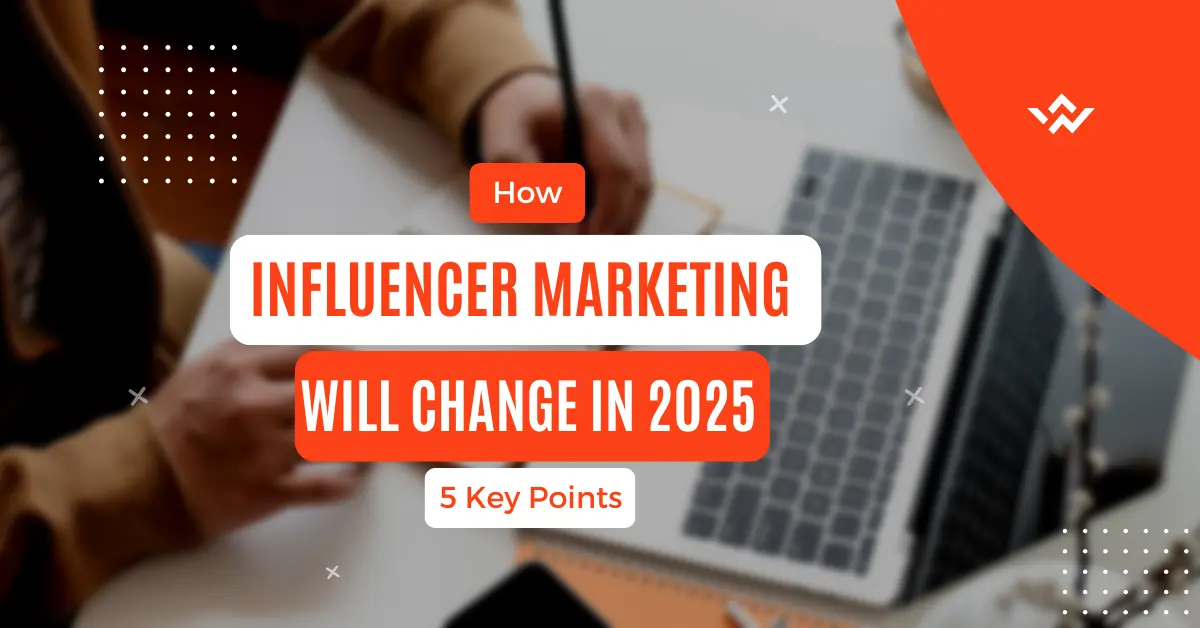
How Influencer Marketing Will Change in 2025: 5 Key Points
- 95
- 0
- 0
Influencer marketing in 2025 will concentrate on authenticity and niche creators. Audiences will prefer influencers who build genuine connections rather than those promoting generic ads. Micro and nano influencers with smaller, loyal followings will gain popularity for targeted campaigns. AI-powered tools will help brands find the perfect influencers and track real-time results. Platforms like TikTok and Instagram will remain key, while new platforms may emerge. Additionally, transparency in paid promotions will become crucial as regulations tighten. Businesses will prioritize long-term partnerships with influencers to build trust, making influencer marketing more personalized and impactful than ever.
How Influencer Marketing Will Change in 2025: 5 Key Points
As we look ahead to 2025, influencer marketing continues to change how brands connect with their customers. Based on current trends and market signals, here are five major changes we expect to see in the influencer marketing landscape.
AI-Powered Influencer Creation Becomes Mainstream

The rise of AI-generated influencers will be one of the biggest shifts in 2025. More brands will work with virtual influencers – computer-generated characters with realistic personalities and appearances. These AI influencers won’t get tired, won’t have scandals, and can create content 24/7.
What to watch for:
- AI influencers will be clearly labeled as virtual to maintain transparency
- They’ll have more natural interactions with followers through advanced AI
- Brands will use them alongside human influencers, not as complete replacements
- Production costs will drop as AI technology improves
However, human connection will still matter. Real influencers will focus more on authentic, unscripted content to stand out from their AI counterparts.
Micro and Nano Influencers Take Center Stage
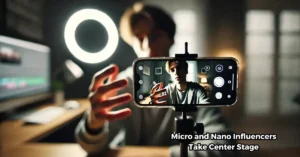
While mega-influencers with millions of followers won’t disappear, 2025 will see brands putting more money into partnerships with smaller creators who have 1,000 to 50,000 followers.
Why this shift matters:
- Micro-influencers often have higher engagement rates
- Their followers trust their recommendations more
- They charge less than celebrity influencers
- They focus on specific topics or locations
- Their content feels more authentic and relatable
We’ll see more brands building networks of micro-influencers instead of working with just a few big names. This approach will help them reach different audience segments more effectively.
Social Commerce Gets More Advanced

In 2025, the line between social media posts and shopping will blur even more. Influencers will use new tools to sell products directly through their content.
New features to expect:
- Live shopping streams with real-time inventory updates
- AR try-ons through social media
- One-click purchasing from influencer videos
- Personalized product recommendations based on viewer data
- Integration with major e-commerce platforms
Influencers will become more like personal shoppers, helping followers find and buy products that match their interests. The shopping details will be smoother and more lifelike.
Focus on Long-Term Partnerships

Quick, one-off promotions will decline in 2025. Brands and influencers will form longer partnerships, often lasting 6-12 months or more.
Benefits of long-term partnerships:
- Better authenticity when influencers regularly use and talk about products
- More consistent brand messaging
- Higher quality content as influencers understand the brand
- Stronger trust from followers
- Better return on investment for brands
These partnerships will look more like brand ambassadorships, with influencers helping shape product development and marketing strategies.
Data and Performance Tracking Gets Better
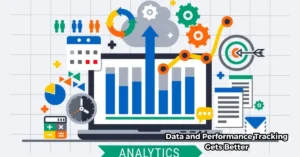
2025 will bring more advanced ways to measure influencer marketing success. Brands won’t just count likes and comments anymore.
New metrics will include:
- Detailed audience behavior analysis
- Sales attribution across multiple platforms
- Brand sentiment tracking
- Return on ad spend calculations
- Audience retention rates
- Cross-platform performance data
This shift will help brands:
- Make better decisions about influencer partnerships
- Understand the real impact of campaigns
- Adjust strategies based on solid data
- Show clear ROI to stakeholders
- Identify the most effective content types
What This Means for Brands and Influencers
For Brands:
- Budget planning will need to change to support longer partnerships
- Teams will need training on new measurement tools
- AI tools will help find the right influencers
- Content approval processes might need updates
- More focus on building influencer relationships
For Influencers:
- More pressure to show real results
- Need to learn new technologies
- Focus on building genuine connections with followers
- More involvement in brand strategy
- Better tools for content creation and tracking
Tips for Success in 2025
- Stay Real Even with all the new technology, authentic connections will still matter most. Focus on creating honest, helpful content that connects with your audience.
- Keep Learning The influencer marketing world changes fast. Stay updated on new tools and features, and be ready to try new things.
- Think Long-Term Build relationships that last, both with your audience and with brands. Quick wins won’t work as well anymore.
- Use Data Wisely Learn to understand and use performance data, but don’t let it stop you from being creative and taking risks.
- Be Transparent As the line between ads and regular content blurs, being clear about partnerships becomes even more important.
Final Thoughts
2025 will bring exciting changes to influencer marketing. While technology will play a bigger role, success will still depend on building trust and creating valuable content. Brands and influencers who focus on authentic connections while using new tools wisely will do their best.
Remember that influencer marketing will keep changing after 2025. The best approach is to stay flexible and keep learning as new trends and technologies appear.
FAQs
How will authenticity impact influencer marketing in 2025?
Authenticity will dominate in 2025 as audiences prefer genuine influencers over generic ads. Brands will collaborate with creators who build trust and connect deeply with their followers for more meaningful campaigns.
Why are micro and nano influencers earning popularity?
Micro and nano influencers with smaller, loyal audiences are ideal for niche campaigns. They deliver higher engagement and trust, making them a top choice for brands seeking targeted, authentic marketing strategies.
What role will AI play in influencer marketing?
AI will transform influencer marketing by helping brands identify suitable influencers, analyze audience behavior, and measure campaign success. This ensures efficient collaborations and more effective marketing strategies.
Which platforms will be crucial for influencer marketing?
Platforms like TikTok and Instagram will remain central to influencer marketing, while emerging platforms may offer new opportunities for creative, engaging, and diverse content strategies.
How will regulations affect influencer marketing in 2025?
Transparency in paid promotions will become essential due to stricter regulations. Influencers and brands must disclose collaborations clearly, ensuring ethical practices and maintaining audience trust.
Also Read:
5 SEO Trends You Need to Know for 2025
References:
https://en.wikipedia.org/wiki/Influencer_marketing
https://en.wikipedia.org/wiki/Influencer
https://www.researchgate.net/publication/359399314_Influencer_Marketing
Disclaimer:
The views expressed in this blog are for informational purposes only. They do not constitute professional advice. Readers should verify facts and consult experts before making decisions. The author is not responsible for any actions taken

